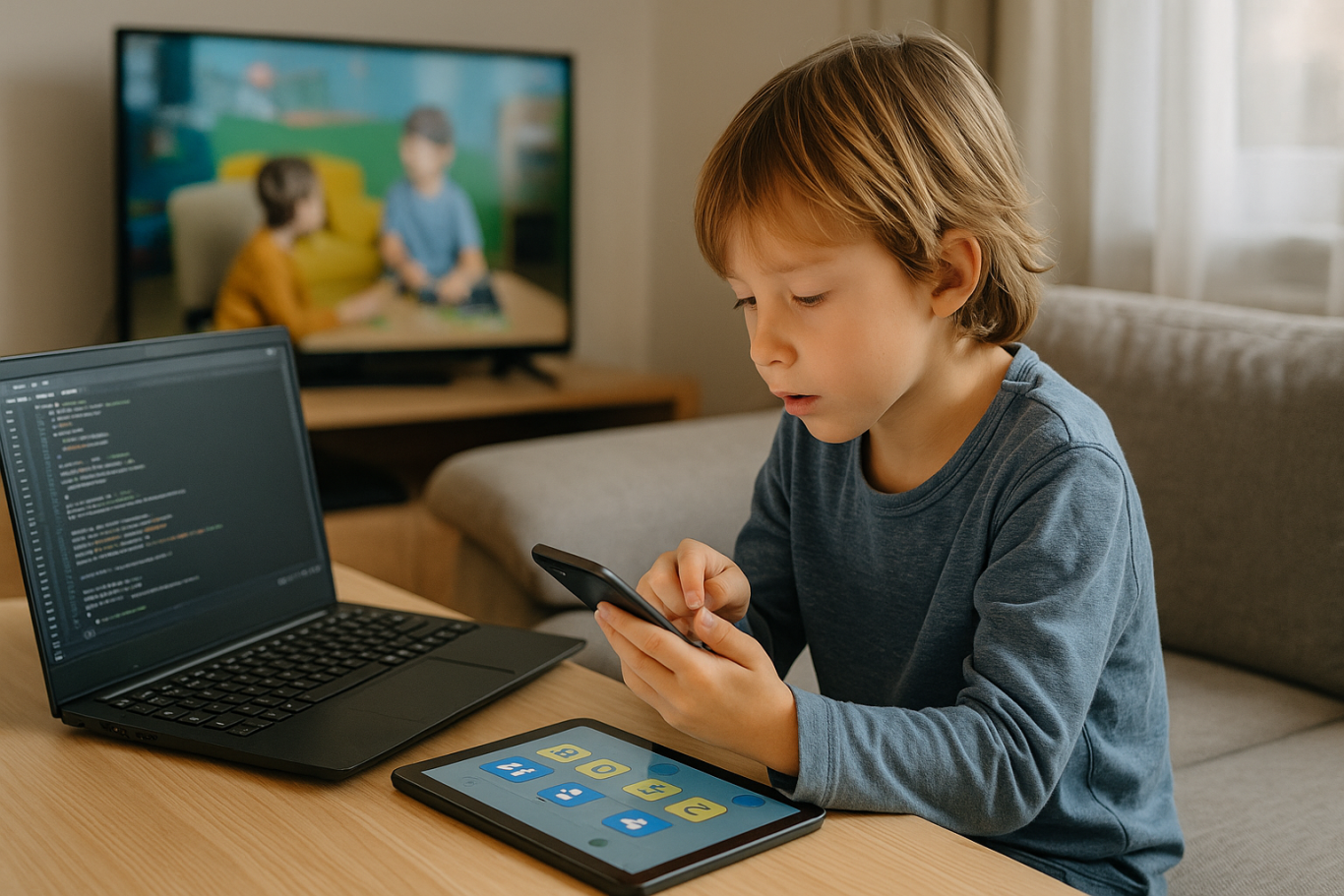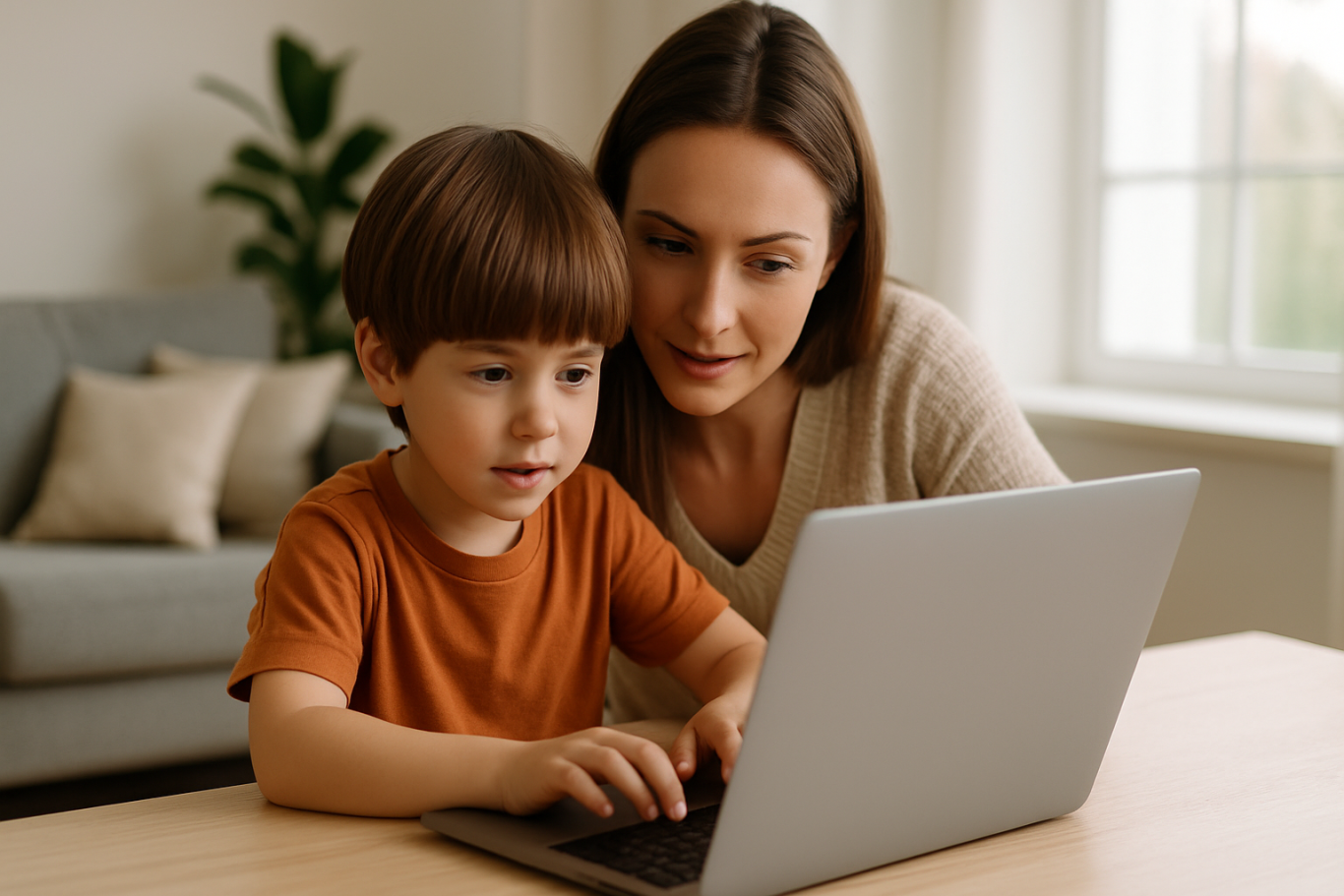Preparing Kids for Future Tech Careers with a Coding Course for Kids in 2025
The world is evolving at a rapid pace, driven by advances in technology, automation, and artificial intelligence. While it is impossible to predict exactly what the job market will look like in 10 or 20 years, one thing is certain: digital skills will play a central role. That is why more parents are now exploring the value of a coding course for kids. Learning how to code does more than just prepare children to become programmers. It builds critical skills like problem-solving, creativity, and resilience.
This article will walk you through why a coding course for kids is one of the best investments you can make for your child’s future and how it can shape the next generation of tech-savvy thinkers and creators.
Technology Is No Longer Optional

Children today grow up surrounded by technology. From smartphones and smart TVs to tablets and video games, digital devices are an everyday part of their lives. However, being a passive user of technology is different from understanding how it works. A coding course for kids transforms children from consumers into creators. They do not just play games or use apps. They learn how to build them.
Understanding basic programming concepts gives children confidence and opens their minds to the endless possibilities of tech careers. It shows them that technology is not a mysterious thing to fear. It is a tool they can use to solve problems and express themselves creatively.
Building Essential 21st Century Skills

One of the most underrated aspects of coding is the wide range of transferable skills it develops. A good coding course for kids goes beyond teaching syntax or how to use certain platforms. It teaches them to think in structured, logical ways. Kids learn how to break problems into smaller parts, test solutions, and improve their ideas through trial and error.
Coding also promotes persistence. When code does not work, children learn to troubleshoot and try again. This growth mindset builds resilience that applies to many areas of life, including academics and personal challenges.
In addition, coding encourages collaboration. Many programs today teach children to work in pairs or teams, sharing code, helping each other debug, and presenting their projects to classmates. These experiences enhance communication and teamwork.
Opening Doors to Future Careers

According to many labor market studies, careers in technology will remain in high demand for the foreseeable future. Roles like software developers, data analysts, UX designers, and cybersecurity experts are growing rapidly. Even non-tech industries are becoming increasingly digital, meaning that tech literacy is becoming a core requirement across professions.
Enrolling your child in a coding course for kids helps them build a strong foundation early. They do not have to decide now whether they want to be a developer. The important thing is that they understand the logic behind technology and feel comfortable exploring it. This early exposure can spark interest in STEM fields and set them up for further learning in middle school, high school, and beyond.
Coding Encourages Creativity and Confidence

Contrary to the myth that coding is purely technical or dry, it is actually a creative process. Kids can design interactive stories, develop simple games, animate characters, and even build websites. Every coding project is a chance to express ideas and bring imagination to life.
A well-structured coding course for kids allows children to experiment and innovate. When they see their code produce real results on the screen, it boosts their confidence. They feel a sense of ownership and achievement that motivates them to keep learning.
For children who struggle in more traditional subjects, coding can offer an alternative way to shine. It is not about memorizing formulas or facts. It is about building something with your own hands and mind.
Early Coding Education Reduces Future Intimidation

Another major benefit of a coding course for kids is that it helps demystify technology. Many adults feel overwhelmed by the rapid pace of digital change. By learning coding at a young age, kids grow up viewing technology as something they can understand and control.
This perspective empowers them. It also gives them a head start in a world where being digitally fluent is no longer a bonus but a basic expectation. Whether they end up working in a tech-related field or not, they will be better prepared to adapt to new tools, systems, and digital environments.
Join a Free Coding Course For Kids Today at Timedoor Academy

Ingin tahu detail program?
If you are ready to prepare your child for the tech-driven future, Timedoor Academy is here to help. We offer a structured, engaging, and age-appropriate coding course for kids that focuses on building real-world skills through fun and interactive lessons.
Our courses are designed for children aged 6 and up and are led by experienced mentors who know how to spark curiosity and encourage exploration. Kids learn at their own pace while developing confidence in coding, creativity, and communication.
Sign up today for a free trial class and let your child discover the excitement of learning to code. Timedoor Academy is committed to helping your child become a future-ready thinker and tech creator.